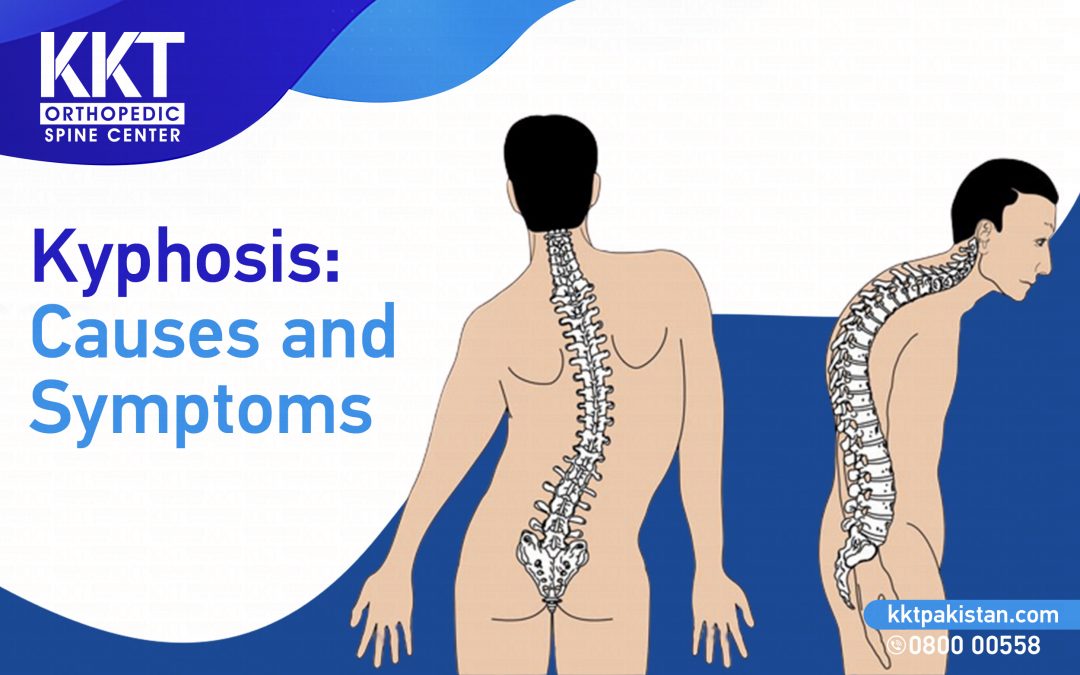Kyphosis is a curving of the spine that causes rounding of the back leading to a slouching posture, general term for kyphosis is hunchback. It can occur at any age, but it is rare at birth. Kyphosis can occur in young children who have cerebral parsley. Kyphosis treatment involves a physical training program that incorporates aerobic and primary muscle mass conditioning.
Major Types of Kyphosis
There are three types of kyphosis:
Congenital kyphosis
It is present at birth when the spine does not fully form before birth. It may get worse as the child grows. Congenital is a condition that exists from birth. When your spine is not fully developed, it might result in congenital kyphosis. It may get worse, with growing age.
To stop the curvature of the spine from getting worse in children, surgery might be used to rectify it. It may also occur with other congenital growth problems, such as kidney and heart defects.
Postural kyphosis
It occurs due to poor posture. It is more common in girls. This kind of kyphosis is the most prevalent kind. It typically occurs during teenage.
Vertebrae, or spinal bones, are held in place by ligaments and muscles that are stretched by slouching or bad posture. The spine becomes rounded as a result of stretching because it forces your vertebrae out of their natural alignment.
Scheuermann’s kyphosis
It occurs when the spinal bones grow in an abnormal, wedged fashion. Scheuermann’s and postural kyphosis are commonly diagnosed between the ages of 13 and 16. Teens’ bones are growing at a quick rate, which explains this. But anyone, at any age, can develop it.
The flexibility of the vertebrae declines with age, which may result in a forward tilting of the spine. A congenital form of kyphosis can also be inherited.
What is the main cause of kyphosis?
Deficiency of Vitamin D is a significant cause of kyphosis. The cause of kyphosis depends upon the type but general causes of kyphosis are poor posture, bone growth abnormalities, age, spinal injuries, and structural abnormalities. In adults, kyphosis can be caused by:
- Degenerative diseases of the spine such as arthritis.
- Fractures caused by osteoporosis
- Spinal Injury (trauma)
- Slipping of vertebra
What are the warning signs of kyphosis?
These are the warning signs of kyphosis. If you feel the following symptoms it is time to get a medical checkup.
- Soreness or rigidity in shoulder blades and back.
- Numbness in legs.
- Extreme exhaustion.
- Balance problems.
- Respiratory difficulties or shortness of breath.
What is the best treatment for kyphosis?
Assuring patients with postural bends helps since it prevents their curvature from progressing and strengthens appropriate, healthy posture and vertebral alignment.
KKT treatment in addition to a real physical training program that incorporates aerobic and primary muscle mass conditioning is beneficial for people who may experience pain or stiffness due to kyphosis. For affected individuals to manage their disease indications and symptoms, KKT treatment aids in physical rehabilitation and spine adjustment. Although the specific structure in the spinal column is usually not altered, the spine therapy provided by KKT Orthopedic Spine Centres may help lessen the indications and symptoms related to postural and Scheuermann’s types. In cases of congenital kyphosis, surgery can be necessary.

